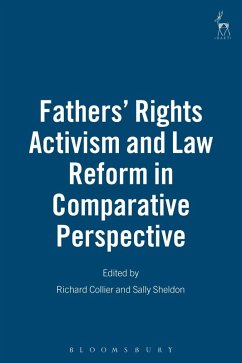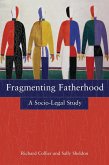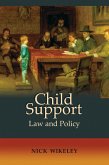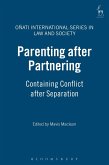The legal status, responsibilities and rights of men who are fathers - married or unmarried, cohabiting or separated, biological or social in nature - is a topic with a long and well-documented history. Yet recent developments in a number of countries suggest a growing politicisation of the relationship between law and fatherhood. In some countries, an increasingly vocal, visible and well-organised fathers' rights movement has been credited with influencing perceptions of the politics of family justice. Fathers, it is argued, have become the new victims of family law justice systems that have swung 'too far' in favour of mothers. Armed with such claims, fathers' rights activists have set out to achieve a range of legal reforms, most notably in the areas of child support law and contact and residence rights following separation.
This book presents an attempt to understand these developments. Bringing together leading international commentators it provides a careful, critical and comparative analysis of the work of fathers' rights activists, the role law has played in their campaigning, their legal strategies, their success (or otherwise) in achieving legal reform, similarities and divergences with the women's movement, and the relationship between fathers' rights movements and the societies that frame them.
In addition to Collier and Sheldon, contributors include: Susan B Boyd (University of British Columbia, Canada), Jocelyn Crowley (Rutgers University, USA), Maria Eriksson (Goteborg University, Sweden), Keith Pringle (Aalborg University, Denmark), Helen Rhoades (Melbourne University, Australia), and Carol Smart (Manchester University, UK).
This book presents an attempt to understand these developments. Bringing together leading international commentators it provides a careful, critical and comparative analysis of the work of fathers' rights activists, the role law has played in their campaigning, their legal strategies, their success (or otherwise) in achieving legal reform, similarities and divergences with the women's movement, and the relationship between fathers' rights movements and the societies that frame them.
In addition to Collier and Sheldon, contributors include: Susan B Boyd (University of British Columbia, Canada), Jocelyn Crowley (Rutgers University, USA), Maria Eriksson (Goteborg University, Sweden), Keith Pringle (Aalborg University, Denmark), Helen Rhoades (Melbourne University, Australia), and Carol Smart (Manchester University, UK).









